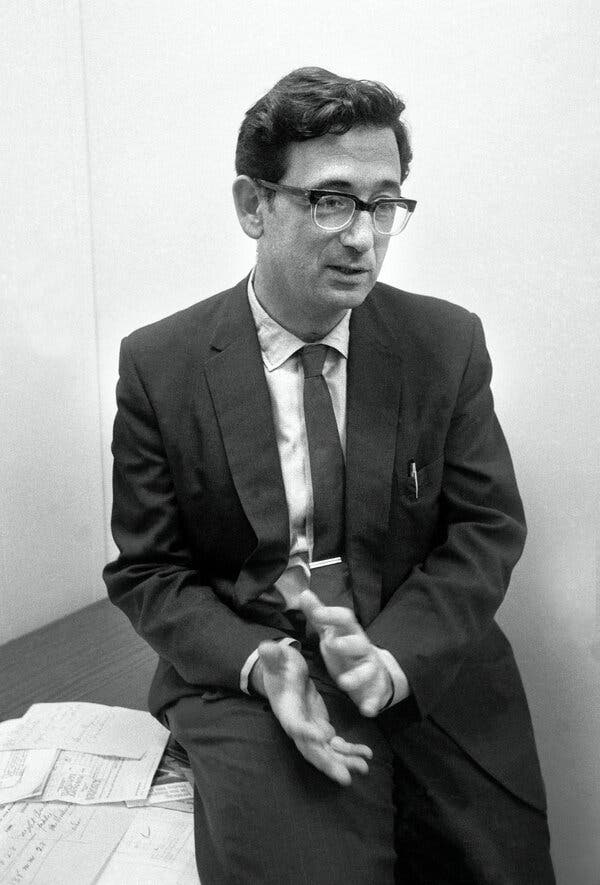A leading historian of antisemitism, he countered the prevailing narrative of Jewish victimhood and later pushed back against efforts to diminish the Holocaust’s significance.

Yehuda Bauer, whose family narrowly escaped the Nazis in their flight to Mandatory Palestine from Czechoslovakia in 1939, and who later drew on that experience in becoming a leading scholar of the Holocaust and antisemitism, died on Friday at his home in Jerusalem. He was 98.
His daughter Anat Tsach confirmed his death.
Dr. Bauer did not initially intend to study the Holocaust; he was more interested in the recent history of Israel, his adopted land. But a conversation in 1964 with his friend Abba Kovner, who had fought the Nazis as a partisan in Belarus and later became a poet, persuaded him to change direction.
For the first decades after the end of World War II, many scholars treated the Holocaust as off limits; the need to bring West Germany into the anti-Soviet fold put a damper on research into the Nazi era, and many people, especially in Israel, considered those who died to be hapless victims.
Then, in 1961, the political scientist Raul Hilberg published “The Destruction of the European Jews,” the first book to document how the Germans planned and carried out the Holocaust. But Dr. Bauer, a friend of his, found Dr. Hilberg’s focus on the German side of the story inadequate. It fit too easily with the prevailing victim narrative, he thought, while he knew many survivors, like Mr. Kovner, who had staunchly resisted.
Over the following decades, Dr. Bauer led a new generation of scholars in researching the Jewish side of the Holocaust.
“What Bauer did was to puncture that myth, to make it clear that Jews did not allow themselves to be killed,” Menachem Rosensaft, who teaches about genocide at Cornell Law School, said in an interview.